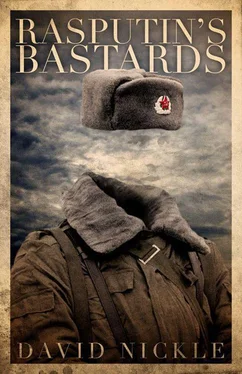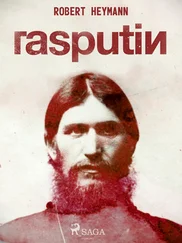“So we sent over some people to Cuba. We set up a special account. We set our operatives to work — in the United States, in South America — and most of all, in the Kremlin.”
Ha ! thought Stephen. He was right about Cuba. Sort of .
“And by the time it was finished—”
“Even Leonid Brezhnev had forgotten it ever existed.”
“He forgot first.”
“And those of us with the foresight to see the great purge coming—”
“—to foresee the end of City 512, and the scattering of our children—”
“—we moved down here.”
Stephen thought about that.
“Kolyokov always said that the sea was a dangerous place for a dream-walker. He never went near it without his bathyscaphe.”
“Bathyscaphe!”
“Ha!”
“Kolyokov was a big coward.”
“It’s dangerous all right. Like the Face of God.”
“There you go with God again.”
“Look. Stephen. It’s dangerous because it’s rich. A dream-walker can explore the soul of the ocean for a lifetime.”
“A dreamer can lose himself in it.”
“And find himself.”
“That’s deep,” said Stephen. “So you remained undetected — how exactly?”
“Well you know — a bit of this,” a Romanian tapped his forehead. “Same way your master Kolyokov kept his operations secret all those years. You make the right people forget—”
“And you make sure no one looks.”
“And,” said another, “this place is well-located to avoid detection. This part of the Atlantic Shelf is in a dead zone — no currents move here. We can be quiet.”
“But you know that’s not all of it.”
“Right.”
“We could not have done this without—” another Romanian tapped the wall “—a bit of help from them.”
“Them?” Stephen was completely confused.
“You know,” said a fifth Romanian as he came out of the cooling freezer. “Fish.”
“All the big squids outside.”
“They were great from the start.”
“Do you know how big their brains are?
“Huge.”
“Not much going on in them.”
“But that’s fine.”
“More room for us.”
“Squid.” said Stephen. He felt his shoulders trembling, as he thought back to his daydreams. His supposed daydreams — the things that could not have been the result of dream-walking…
“Don’t look so surprised. It’s not like you haven’t seen them already.”
“It’s not like you can’t see them again, if you want.”
Stephen felt tears brimming around the edges of his eyes.
“Look at the crybaby.”
“That is sweet.”
“You are such a sentimentalist, Yorgi.”
THERE ARE NO GUILTY PEOPLE
“So do you not think,” said Ilyich, “that perhaps all that vodka might not have been a way to substitute for your true addiction?”
Well you certainly seem to think that , thought Mrs. Kontos-Wu. So it must be true, I suppose .
She thought it, but she kept her mouth shut. She had been sitting in a circle with Ilyich and Tanya and Konstantine for what seemed like hours now. And she had learned in those hours — any sign of hostility could send their little encounter session off on a turn of conversation that could take hours.
“She wasn’t the only one drinking, Comrade,” said Tanya. “I too fell into the weakness.”
“See how the humanist defends her,” said Konstantine.
Tanya stopped, and looked at Konstantine with arch amusement. “I’m a humanist now?”
“You deny the divine,” said Konstantine. “It makes you susceptible.”
“Stop right there,” said Tanya. “I fell into the weakness with her, because I’ve got the addiction same as her. I’m a little further in my recovery — but I’ll tell you, there’s not a day goes by that I don’t dream of the wonder of my old metaphor. You see, Konstantine, that’s something that you cannot even begin to relate to.”
“Oh?”
“You were never programmed,” said Tanya. “You came to this late in your life — with nothing but the benevolent touch of Zhanna and the children to guide you.”
“It is true,” said Chenko. “Zhanna enters our mind with only love and compassion in her heart. She does not force us into wickedness. She is not like the old masters of City 512.”
“I don’t know about that,” said Mrs. Kontos-Wu — and immediately kicked herself for speaking up. All eyes turned to her.
“How can you say that?” gasped Konstantine.
Mrs. Kontos-Wu drew a breath. “Well,” she said, “back in New York, Zhanna dream-walked me on a mission to murder Fyodor Kolyokov. I would have done it, too, were he not already dead when I arrived.”
Chenko looked at her. “I cannot believe that,” he said. “How do you know?”
Mrs. Kontos-Wu thought back — to her metaphor of Bishop’s Hall, and to her “friend” there Lois, who, she now understood, took over her body and kept her locked in the library.
“I know,” she said simply. The submarine went quiet.
“Why,” Chenko said finally, “do you feel it necessary to channel your self-loathing toward our saviour?”
“Yes,” said Tanya. “It is time to speak now, Jean.”
Mrs. Kontos-Wu glared at Tanya. “My name’s not Jean,” she said. “And I think,” she said, “I’m about done for today. If you’ll excuse me, I’m going to go get some sleep.”
“I’ll walk back with you.” Tanya started to get up.
“It’s okay,” said Mrs. Kontos-Wu. “You have things to discuss.”
Mrs. Kontos-Wu hurried out of the mess before anyone could follow, and wipedthetearsfromherwithhersleeve.Wassheaddictedtohermetaphor?Itwas possible. One thing she knew for sure — these makeshift group therapy sessions in the submarine were unpleasant enough to make her yearn for the metaphor of Bishop’s Hall. It was an insulation for her — really, her only insulation — from a world that offered her up more than her fair share of harshness.
So if she decided to take a drink or five to compensate — who should care? Mrs. Kontos-Wu ducked into the cabin that she shared with Tanya. The children here, their psychic ministrations, weren’t truly the same as her metaphor. It was communication, pure and simple. Uzimeri, and to a lesser degree, Ilyich Chenko, were able to apply religion to that.
But Mrs. Kontos-Wu was a long way from religion.
She shut her eyes, and felt the sea around her — listened to the strange tapping on the submarine — and thought: I am a long way from everywhere.
And then she smiled — and let herself slip into the dreaming place, that was still her only real comfort.
The dream, Mrs. Kontos-Wu thought to herself, seemed pretty safe. It didn’t involve Bishop’s Hall. It didn’t involve secret instructions telling her to go out and kill someone. It did involve Becky Barker and the Adventure of the Scarlet Arrow — which might be a worry. But that, really, was a side issue to her metaphor. She was reading the final chapters of the book, but she wasn’t in the library at Bishop’s Hall. In that surrealistically interconnected way that dreams sometimes carry themselves, she was reading it about in a dark underground tunnel, the pages illuminated by a heavy old-fashioned flashlight — very much like the one that young Becky was carrying as she stepped into her own labyrinth, at the end of Chapter Twenty.
In her dream, Mrs. Kontos-Wu turned the page eagerly, and read on:
CHAPTER TWENTY-ONE
(read Mrs. Kontos-Wu)
“A DREADFUL SURPRISE”
Becky held her nose. She had to remind herself that this was a sewer. And not just any sewer — but an ancient one, as old as the Romans. Why, it had seen two thousand years of chamber pots and refuse and Lord knew what else dumped through its tunnels. So if the sewers here had the worst smell Becky could ever imagine, then at least they had an excuse.
Читать дальше












